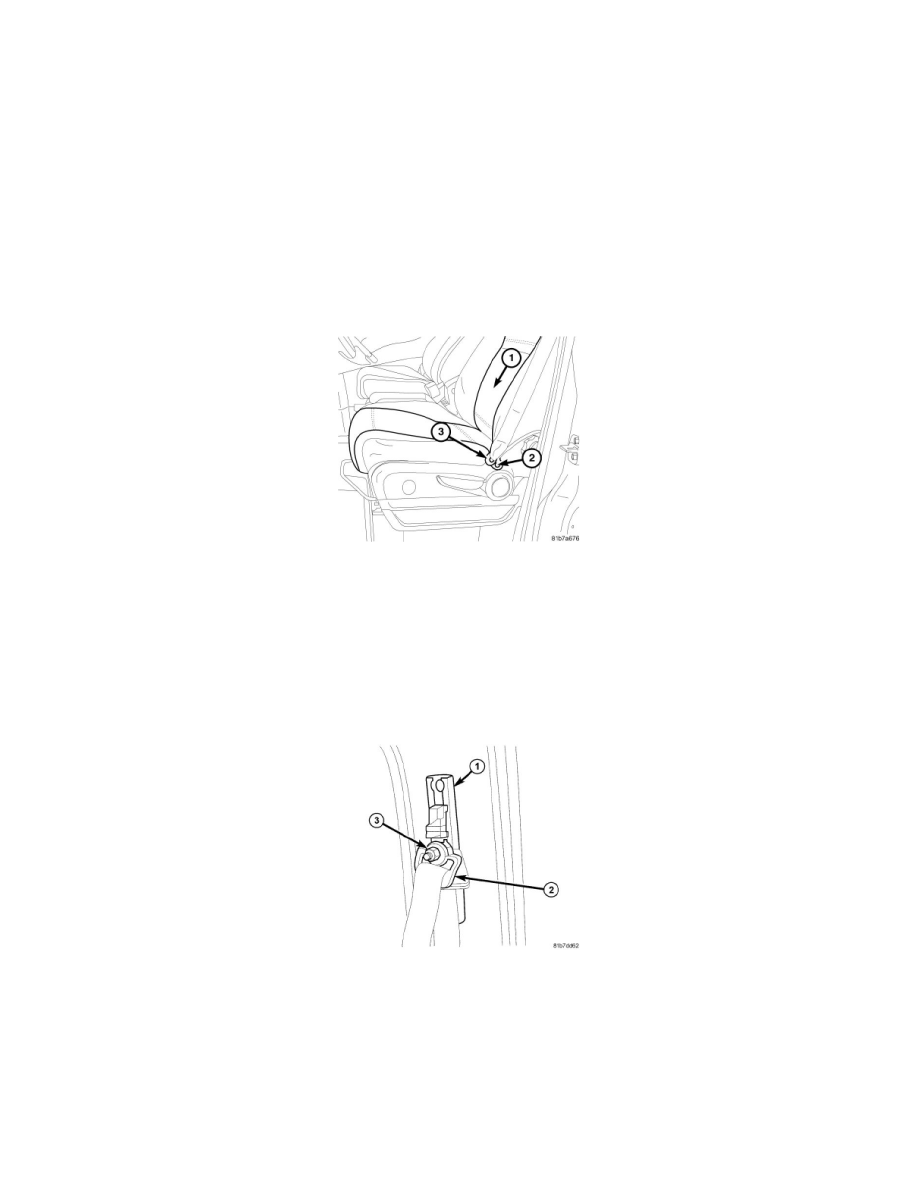Sprinter 3500 V6-3.0L DSL Turbo (2008)

any steering wheel, steering column, airbag, seat belt tensioner, impact sensor, or instrument panel component diagnosis or service. Disconnect and
isolate the battery negative (ground) cable, then wait two minutes for the system capacitor to discharge before performing further diagnosis or service.
This is the only sure way to disable the supplemental restraint system. Failure to take the proper precautions could result in accidental airbag deployment.
WARNING: To avoid serious or fatal injury during and following any seat belt or child restraint anchor service, carefully inspect all seat belts,
buckles, mounting hardware, retractors, tether straps, and anchors for proper installation, operation, or damage. Replace any belt that is cut,
frayed, or torn. Straighten any belt that is twisted. Tighten any loose fasteners. Replace any belt that has a damaged or ineffective buckle or
retractor. Replace any belt that has a bent or damaged latch plate or anchor plate. Replace any child restraint anchor or the unit to which the
anchor is integral that has been bent or damaged. Never attempt to repair a seat belt or child restraint component. Always replace damaged or
ineffective seat belt and child restraint components with the correct, new and unused replacement parts listed in the DaimlerChrysler
Mopar(R) Parts Catalog.
NOTE: The following procedure is for replacement of an ineffective or damaged seat belt and retractor unit. The front outboard retractor also
includes a seat belt tensioner. If the front outboard seat belt or retractor is ineffective or damaged, but the seat belt tensioner is not deployed,
review the recommended procedures for handling non-deployed supplemental restraints. See: Air Bag Systems/Service and Repair. If the seat
belt tensioner has been deployed, review the recommended procedures for service after a supplemental restraint deployment before removing
the unit from the vehicle. See: Repairs and Inspections Required After a Collision/Service and Repair.
1. Disconnect and isolate the battery negative cable. Wait two minutes for the system capacitor to discharge before further service.
2. On the driver side and on vehicles equipped with a passenger side bucket seat, adjust the front seat (1) to its most forward position for easiest
access to the B-pillar trim.
3. On the driver side and on vehicles equipped with a passenger side bucket seat, unsnap and remove the plastic cover from the screw (2) that secures
the front outboard seat belt lower anchor (3) to the outboard side of the seat frame.
4. Remove the screw that secures the lower anchor to the seat frame.
5. On the driver side and on vehicles equipped with a passenger side bucket seat, pull the outboard side shield away from the seat cushion far enough
to disengage the lower anchor from the seat frame.
6. Remove the trim from the inside of the B-pillar. See: Body and Frame/Interior Moulding / Trim/Trim Panel/Service and Repair/Pillar
Trim/B-Pillar Trim.
7. Remove the screw (3) that secures the front outboard seat belt turning loop (2) to the height adjuster (1) on the upper inner B-pillar.
8. Remove the turning loop from the height adjuster.
